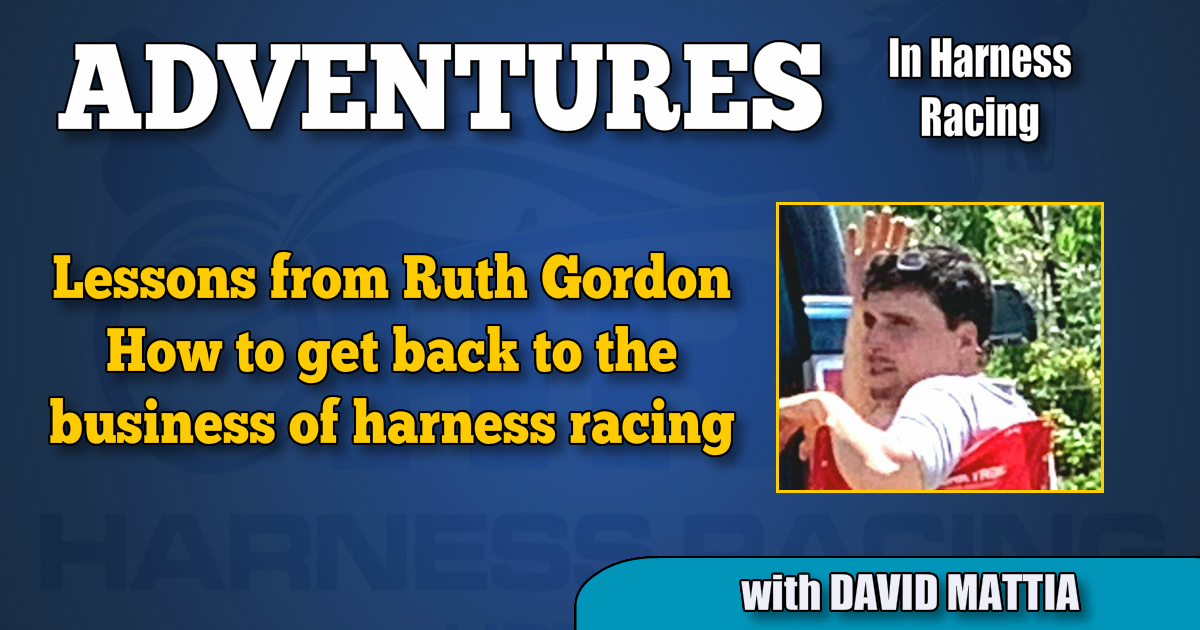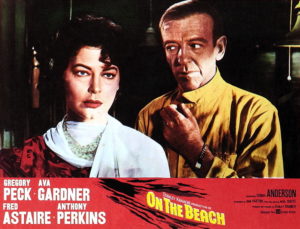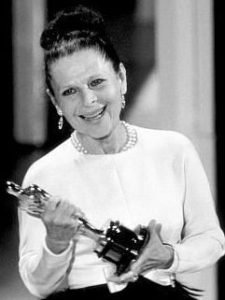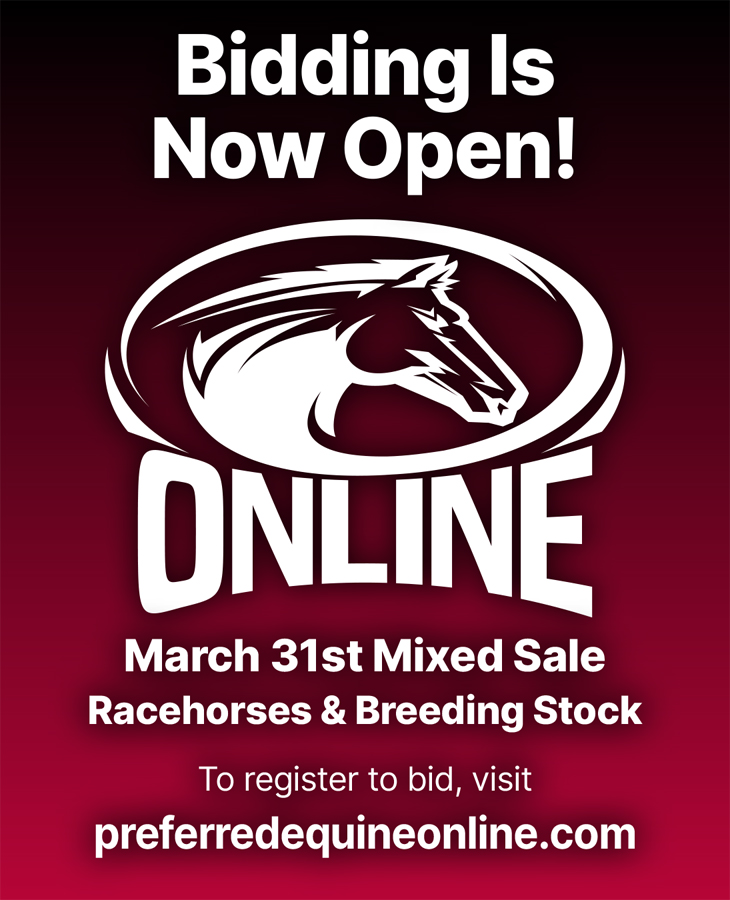Lessons from Ruth Gordon
How to get back to the business of harness racing.
by David Mattia
Recent reports suggest that harness racing, at least in New York and New Jersey, will be back in action by the beginning of May, or maybe the middle, or maybe the end, or maybe…
I suppose “never” is a harsh word, but the “COVID-19 Lockdown” will be a life-changing event for many or most people who work beside other people in any field of endeavor. Those unaffected by the potentially deadly possibilities of regrouping in harness racing, are living in a kind of blissful obliviousness. Statistically speaking, most people in North America aren’t personally acquainted with someone who has died from the virus. Sadly, that statistic doesn’t apply to most folks in the harness game.
There’s a thin line between bravery and ignorance, but sometimes you need to shake someone’s shoulders vigorously to bring home that point. If what happened to John Brennan and the Fusco family isn’t a sufficiently vigorous shakeup, nothing is.
Ironically, and almost simultaneously, a deadly viral pandemic, while infecting millions of people, has mercifully disinfected the FBI’s revelations of gross malfeasance within the harness racing industry. It’s the oddest thing. For racing’s public perception, the pandemic couldn’t have been better timed. Sometimes nature’s weather fronts are merciful, but those prevailing winds always change direction. Trouble is that the humiliation of the federal indictments has had time to cool down to room-temperature. In other words, the pandemic stole the FBI’s thunder.
The fact that I’ve opted to capitalize the phrase “COVID-19 Lockdown” is ample testament to its ultimate historic significance. What would D Day or the Battle of The Bulge be without the capital letters? There’s no set journalistic rule for doing this about COVID-19, not yet anyway, but there will be eventually, so I want to stay on the right side of history by commemorating illness and death and economic mayhem with capital letters.
Horse racing folks don’t have time for ordinary illness and death. That’s not to mock them or to suggest that they’re more daringly defiant than most people who need to make a living. It’s just that they’re bound by a bloodborne sickness. Once you’re infected by the racing bug, you’re cooked. Statistically, it’s far more infectious than COVID-19.
In racing, there’s a provincial aspect attached to one’s work ethic. Unless you have a terminal illness, there is no such thing as being too sick to come to work at the barn. Harness racing is a show, and the audience members are the villagers who stop in for a night’s entertainment. The show must go on! The curtain must go up! But you might want to hold your horses. I assume the virus doesn’t care about the show or anyone in it. Like the character Bob in the film, “What About Bob?,” it’s not GONE. It’s never gone!
The Academy Award-winning actress-writer Ruth Gordon once said, “Who said that the show must go on? That’s the most ridiculous thing I ever heard. Lord, if there’s ANYTHING that doesn’t have to go on – it’s the show.”
In olden days, long before planes, trains, automobiles and Ruth Gordon, we didn’t have roadside motels. We had inns and taverns where stagecoach passengers could spend the night on a long trek. The innkeeper tended to the human passengers, while a man called an ostler cared for the horses and harnesses.
Ostlers usually lived in the basement or a nearby shack. Most ostlers were crusty old Aqualungs, but others were raggedy orphans or stray children, much like David Copperfield who cries to his long-lost aunt, “I have been slighted, and taught nothing, and put to work not fit for me.I was robbed at first setting out, and have walked all the way, and have never slept in a bed since I first began the journey.”
Usually, the ostler subsisted on rum or ale and crusts of bread from wealthy travelers, or perhaps a few hambones tossed to him by the innkeeper’s wife. Unless he was found dead upon his bed of rags and straw, an ostler was never too sick to be excused from his endless job of stabling road-weary horses and cleaning tack. Death was the only holiday for the ostler.
Let me know when you figure out why I am using an ancient trade – the ostler – to describe something that’s very wrong with harness racing.
Years ago, a prominent horseman asked me to meet him in the paddock. I asked him which paddock he was referring to. The Meadowlands? Freehold? Yonkers? He replied, “The paddock where everybody limps.” That hint was not helpful.
Most horsemen view themselves as being especially robust and separate from the average Joe, but they’re no different from anyone else who puts on a show. Despite the attention focused on the headlining equine performers, horsemen can’t forget that they are an important part of the chorus. Remember, despite the conflicting opinions of Ruth Gordon as opposed to Freddie Mercury, the curtain must go up and the show must go on.
Well, this time the theater is different. It’s haunted. Friends are dead, and the living, for the time being, will be reunited in a cloud of airborne-droplets-of-suspicion. This won’t go on forever, but the fear of coronavirus will literally hang in the air for a considerable length of time.
“Did he wash his hands a lot like Dr. Fauci said?”
“Did she really quarantine for as long as she says she did?”
“I thought I heard someone coughing.”
To assume, with checkmarks on a calendar, that horsemen can waltz right back into the paddock, pretending that it’s just like a golf course after a thunderstorm, is magical thinking. This is an event that will be talked about for ages to come, and that doesn’t include what might or might not happen in the upcoming months and years with regards to both the virus and the FBI indictments.
Stranger still, harness racing bettors, starved for harness racing action in North America, have turned to watching races in Australia.
Talk about life imitating art, did you ever see a motion picture called “On The Beach”?
A 1959 sci-fi drama masterpiece directed by Stanley Kramer, On The Beach, starring Gregory Peck, Ava Gardner and Fred Astaire, tells the story about an American nuclear submarine and her crew. Tucked away in their submarine, the crew has survived a nuclear war, while all life on earth has been wiped out by the radioactive fallout. The only place unaffected is Australia. The cloud of radiation hasn’t reached them yet. The submarine heads there to find a country having one giant party while knowing that they have, at best, a month to live. Gregory Peck falls in love with Ava Gardner and her beautiful horses. The aging racecar driver played by Fred Astaire – not dancing this time – knows that everyone else will eventually have to face the music and dance.
If you haven’t seen, On The Beach, you should. It will remind you about things like isolation and mortality. That might sound like a dramatic overstatement, but as you don your surgical mask to go nowhere, you can’t say that grim images haven’t crossed your mind.
Okay, so here’s the thing. The inescapable truth is that horse racing has horses. These horses are owned by people who pay for their upkeep. Trotters and pacers do not subsist on blue ribbons and trophies. They need to race and earn money. That’s what they do. If they can’t race and earn money – even enough to pay their own feed bill – what do the owners do?
On the other hand, the horses are trained and groomed by people who earn a living by doing their jobs. Like the ostlers who came before them, most of these horsemen have literally worked themselves to death. When racing returns, who will be the first to set foot in any potentially dangerous zone? My best guess is that it would be the grooms, trainers and drivers. The owners can switch the channel from Netflix and watch it from home. Now do you see why I wrote about the ostlers of old?
I am not accusing the owners of being uncaring innkeepers, not by a longshot. If anything, the COVID-19 Lockdown is far worse for them because they’re still paying for a thing that is no longer a thing. From what I hear from friends, most owners, to their credit, are being very kind and generous about this. In my own experience, I can only think of two owners who would have continued paying their bill to me without argument, so I imagine that there are a few owners out there who aren’t handling this very well, and perhaps there is some degree of owner versus trainer conflict. It’s to be expected. I mean, it’s not like my owner who refused to pay me for Sundays because his horse didn’t go out on the track. Geez, how did I let him get away with that?
Okay, so imagine being blind and someone takes you on a tour of the Louvre? That would be weird. Imagine being deaf and a friend takes you to the symphony. Okay, that’s a little different, but what if the friend texts you a message that reads, “You don’t know what you’re missing.” Get the picture? That’s what it’s like to be an owner now.
So, would you rather be a blind owner in the Louvre or a working horseman with a family whose job is defusing colossal bombs like in the movie The Hurt Locker?
Think about it. The racetrack is right there, right before your face, but this virus is taunting everyone who should be on it or near it. Literally, it’s like hanging a carrot on a stick in front of a horse’s face.
Remember earlier when I quoted the actress-writer Ruth Gordon? Allow me to quote her again. Ages ago, when asked about her key to success she replied, “Never give up, and never, under any circumstances, should you face the facts.”
What are the facts that we shouldn’t face if we’re ever going to race our horses again? Primarily, we cannot face the fact that the virus, even after it wanes, can return. We cannot face the fact that horsemen will be wary of one another. We cannot face the fact that we might get sick and die. Think of not facing the facts as an exercise in courage and dignity. That’s kind of what Ruth Gordon was talking about.
And, for the love of God, stop screaming at each other in social media. So many people are bickering about the imaginary politics of the virus. About 50 per cent of these people aren’t qualified to have any opinions about anything let alone the origins of a virus no one has ever seen before. Granted, many of our social media screamers were loopy long before the pandemic, but this time it’s like a painful Halloween.
Regardless of your political stripe, there is no politician in North America who has willingly killed anyone or caused the virus to happen. Everyone is doing the best they can do. Even if you don’t believe this, you accomplish nothing when you mouth off about it. You’re just annoying.
This pandemic is an undiscovered country. There will be sinkholes and crevasses to cross. Along the way, there will be mistakes and disagreements about policy. There will be politicking and partisanship. That’s the way it goes. That’s what we sign up for when we carry an American or Canadian passport. Nothing that favors the owners, trainers, grooms, or the horses most of all, can be accomplished when higher-ups in harness racing – if there is such a thing – start clashing it out in the harness media.
Anyway, the horses must race or else the business is finished. Will there be collateral damage? No one knows for sure. If racing gets cancelled, what will we do with all these horses? Who will pay for them? Where will they live? You can’t just make horses disappear, can you? Well, if you study the FBI wiretaps, it seems that there is a way to do this, but that’s a whole other can of worms that’s yet to be proven in a court of law.
Anyone who knows me, knows that I never offer platitudes and I rarely use euphemisms. For me, people and animals don’t “pass away,” they die. And things that don’t kill you, don’t make you stronger, they’re annoying and meaningless and usually painful. The only exception I will make, right now, is to say that this COVID-19 Lockdown is a “bad patch” and that “all things must pass,” and then I will quote Ruth Gordon again, even though she uses both a euphemism and a platitude. Ruth was a brilliant writer. I’m not, so she gets a pass.
Late in her life, Ruth said, “Life is all about getting through the moment. I had more trouble in my life than anyone. But your first big trouble can be a bonanza if you live through it. Get through the first trouble and you’ll probably make it through the next one and the next one and the next one.”

















